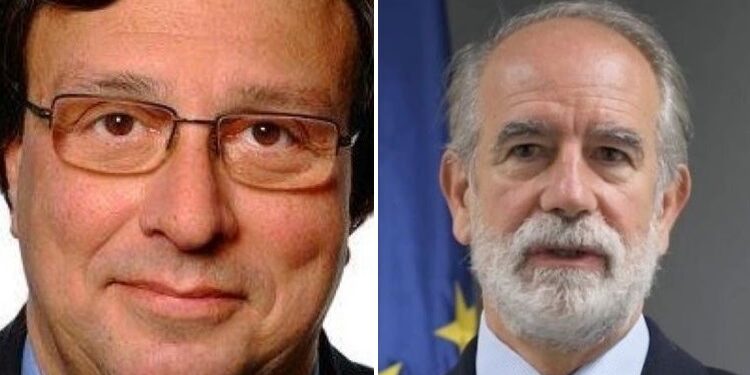Eduardo González
José María Rodríguez Coso was appointed this Tuesday to the position of Spanish ambassador to Belgium, replacing Alberto Antón, whose dismissal has sparked a heated controversy due to alleged political motives.
A law graduate and member of the Diplomatic Service since 1988, Rodríguez Coso served as Spanish ambassador to Ireland (2014-2018) and to the Grand Duchy of Luxembourg (2022-2025).
He also served as Deputy Chief of Staff in the United Arab Emirates (1988-1991), Consul at the Embassy in New Delhi (1991-1994) with various assignments in Nepal, Deputy Consul General in Buenos Aires (1994-1997), Consul General in Agadir (2002-2007), and Consul General of Spain in Perpignan (2018-2022).
During his time in Spain, he served in the Deputy Directorates General for Security and Disarmament and Continental Asia from 2007-2011, as Deputy Ambassador-in-Charge, and subsequently as Ambassador-in-Charge from 2011-2014.
Rodríguez Coso replaces Alberto Antón, whose dismissal was harshly criticized by the Association of Spanish Diplomats (ADE) and the People’s Party (PP), who claimed that the ambassador had been replaced “after falling asleep during a speech by the minister” during the 9th Conference of Ambassadors, held last January in Madrid.
In response to these accusations, Albares accused the PP of “politicizing the diplomatic career” last February. Around the same time, sources from the ADE denounced the “arbitrary” dismissal of five ambassadors before completing their three-year term for political reasons. Specifically, the government had already requested the approval of the successors to the ambassadors to Croatia, Juan González-Barba; to Belgium, Alberto Antón; and to South Korea, Guillermo Kirkpatrick de la Vega.
Letter from Alberto Antón
Days after his dismissal was announced, Antón sent a letter to the minister (published by the newspaper El Debate) informing him that, during the opening ceremony of the Annual Conference of Ambassadors, he “felt ill with the flu and under the influence of antihistamines,” despite which he decided to attend to meet “with the colleagues who defend Spain’s interests and good image around the world every day.”
“After your speech, I was able to watch a video in which several colleagues, including myself, were seen taking a nap. It caught my attention that some of the “sleepers” were marked with striking red arrows. I don’t know who recorded the video, who edited it with arrows, or who distributed it, but there will be an opportunity to find out,” he continued.
“At the time, the video was simply an anecdote we discussed among colleagues in a humorous way. I didn’t give the matter much importance, but I also didn’t rule out that, in the current context of the Ministry you lead, if desired, the video could be used as ‘ammunition’ to try to discredit, intimidate, and eventually remove someone when the time came,” the ambassador wrote.
Antón also recounts that, on January 29, the Undersecretary called him to inform him that his dismissal had been decided and that he should submit a request for a placet for his successor. “The Undersecretary’s call made me interested in the rumors circulating in the corridors, which, in general, are accurate. As I write this letter, the rumors have been confirmed, the situation is clarified, and it is in the public domain,” he continues.
According to Antón, the matter affected “a triangle of embassies (Lithuania, Luxembourg, and Belgium), and I, without having served the usual minimum term (between three and four years), am the only one harmed by your calculated adjustments.” “Meanwhile, interpretations of what happened are soaring, with the operation of changes at the embassies clearly explained. At the same time, the idea that I was dismissed for falling asleep during the solemn act of your speech is widely disseminated in the media,” he writes.
“I must confess, Minister, that this maneuver, apart from being clumsy, ridiculous, and petty, as has already been publicly acknowledged, bothers and dismays me, not only because I see in it, as far as I’m concerned, an attempt to tarnish and jeopardize my professional reputation, built over forty years as a public servant, but above all because it reveals a lack of judgment, which suggests that a principle that all of us colleagues adhere to with discipline, such as discretion, is being confused with arbitrariness, with the resulting sowing of insecurity and fear among those of us who have the responsibility of defending Spain’s interests abroad,” the letter continues.
“I am particularly concerned about this situation when I think of our younger colleagues, recently enrolled in the Service, whose enthusiasm and desire to serve the State I witnessed in my previous position as Ambassador and Director of the Diplomatic School,” he adds.






